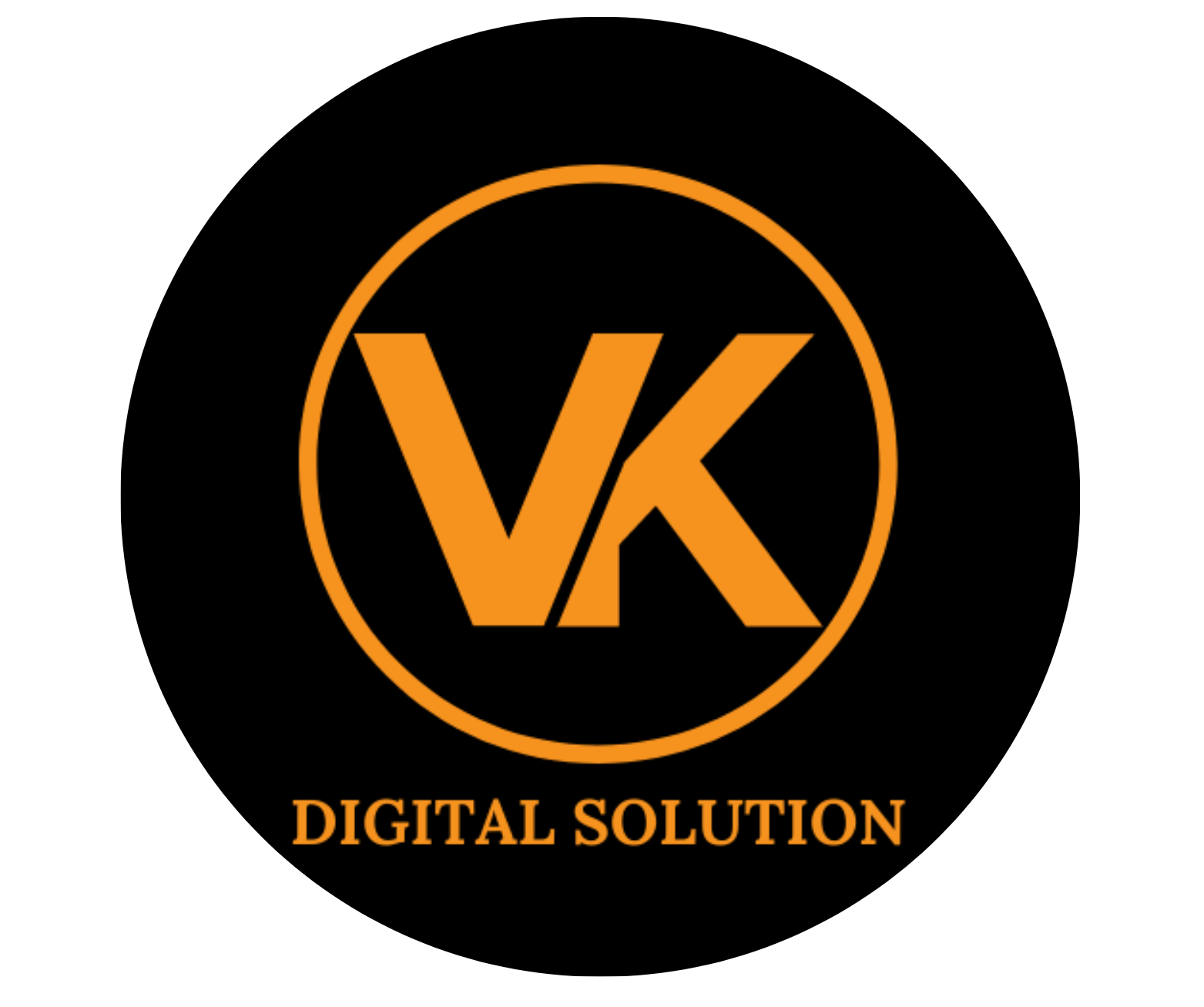Technical SEO Services
Best Technical SEO Services From Top-Rated SEO Experts In India
Best Technical SEO Services in India Vk Digital Solution is a reputable provider of top-notch technical SEO services , boasting a skilled team of seasoned professionals. Their extensive array of technical SEO solutions has been instrumental in assisting countless businesses in attaining their online marketing objectives. They offer a diverse range of services, including optimization of website structure, enhancement of site speed, implementation of schema markup, ensuring proper indexing and crawling, and optimization for mobile devices.

What Is Technical SEO?
Technical SEO refers to the optimization of a website’s technical elements to improve its search engine visibility and rankings. This involves optimizing various aspects of a website’s infrastructure and backend, such as website speed, mobile-friendliness, site architecture, indexing, and crawlability. Technical SEO ensures that search engines can crawl, index, and understand the content of a website effectively, leading to better rankings in search engine results pages (SERPs). It focuses on improving the overall user experience, making the website more accessible, and enhancing its performance in organic search.

What Is Included InTechnical SEO Services in India
Technical SEO services encompass a variety of tasks focused on optimizing the technical aspects of a website to improve its search engine rankings and overall performance. These services typically include

Website Audit
Conducting a thorough assessment of the website’s technical health to identify any issues or areas for improvement.

Mobile-Friendly Optimization
Ensuring the website is responsive and optimized for mobile devices, as mobile-friendliness is a key ranking factor for search engines.

Site Structure Optimization
Ensuring the website’s structure is logical, organized, and easily navigable for both users and search engines.

Page Speed Optimization
Improving website loading times to enhance user experience and meet search engine performance criteria.

Schema Markup Implementation
Adding structured data markup to provide search engines with additional context about the content on the website.

Website Audit
Conducting a thorough assessment of the website’s technical health to identify any issues or areas for improvement.

Site Structure Optimization
Ensuring the website’s structure is logical, organized, and easily navigable for both users and search engines.

Page Speed Optimization
Improving website loading times to enhance user experience and meet search engine performance criteria.

Indexing and Crawling Optimization
Optimizing website elements such as robots.txt, XML sitemaps, and internal linking to facilitate search engine crawling and indexing.

Technical Error Resolution
Fixing technical issues such as broken links, duplicate content, and crawl errors that can negatively impact search engine rankings.

HTTPS Implementation
Securing the website with HTTPS encryption to protect user data and improve search engine rankings.

Performance Monitoring
Continuously monitoring website performance metrics such as page load times, crawl errors, and indexing status to identify and address any issues promptly.
Overall, technical SEO services aim to optimize the technical foundation of a website to ensure it is accessible, user-friendly, and search engine-friendly, ultimately leading to improved visibility and rankings in search engine results pages (SERPs).
Technical SEO Services Overview
What Are Technical SEO Audits?
Technical SEO audits are comprehensive evaluations of a website’s technical aspects to identify issues that may impact its search engine performance. These audits examine various elements such as website structure, indexing, crawling, site speed, mobile-friendliness, schema markup, and technical errors. By conducting technical SEO audits, businesses can uncover areas for improvement and develop strategies to optimize their websites for better visibility and rankings in search engine results pages (SERPs).
Q&A submissions represent a beneficial off-page SEO tactic as they enable the creation of backlinks to your site.


Page Speed Optimization
Page Speed Optimization focuses on improving the loading speed of web pages to enhance user experience and meet the performance standards set by search engines. This optimization process involves various techniques such as minimizing server response time, leveraging browser caching, optimizing images and videos, reducing unnecessary scripts and plugins, and employing content delivery networks (CDNs). By optimizing page speed, websites can decrease bounce rates, increase user engagement, and improve search engine rankings
Image Optimization
Image optimization involves optimizing images on a website to improve loading times, enhance user experience, and boost search engine rankings. This process includes compressing images to reduce file size without sacrificing quality, using descriptive filenames and alt tags to provide context to search engines, and selecting the appropriate image format (such as JPEG, PNG, or WebP) for each image. By optimizing images, websites can achieve faster loading speeds, reduce bandwidth usage, and improve their overall performance in search engine results pages (SERPs).


Fixing broken links
Fixing broken links, also known as 404 errors, involves identifying and repairing links on a website that lead to non-existent or inaccessible web pages. This process is crucial for maintaining a positive user experience and ensuring that visitors can navigate a website without encountering errors. Website owners can fix broken links by updating or redirecting them to relevant pages, removing outdated links, and regularly monitoring their website for any new broken links that may arise. By addressing broken links promptly, websites can improve usability, retain visitors, and maintain their credibility in the eyes of both users and search engines.
How Do We Optimize Websites For Better Technical SEO Score?
Conduct a Comprehensive Technical SEO Audit: Begin by auditing the website to identify any technical issues or areas for improvement. This includes assessing factors such as site structure, page speed, mobile-friendliness, indexing, crawling, schema markup, and technical errors.
Improve Website Structure: Ensure that the website’s structure is logical, organized, and easily navigable for both users and search engine crawlers. This involves optimizing internal linking, creating a clear hierarchy of pages, and removing any unnecessary or duplicate content.
Enhance Page Speed: Optimize page loading times by minimizing server response time, leveraging browser caching, optimizing images and videos, reducing unnecessary scripts and plugins, and utilizing content delivery networks (CDNs).
Optimize for Mobile Devices: Ensure that the website is responsive and optimized for mobile devices, as mobile-friendliness is a key ranking factor for search engines. This includes designing mobile-friendly layouts, using responsive design techniques, and optimizing content for smaller screens.
Implement Schema Markup: Add structured data markup to provide search engines with additional context about the content on the website. This can improve the visibility of the website in search results and enhance the user experience by enabling rich snippets and other search engine features.
Fix Technical Errors: Address any technical errors such as broken links, crawl errors, duplicate content, and missing meta tags. Regularly monitor the website for new technical issues and fix them promptly to maintain optimal performance.
Secure the Website: Ensure that the website is secure by implementing HTTPS encryption, protecting user data, and addressing any security vulnerabilities. Security is increasingly important for both user trust and search engine rankings.
Monitor and Analyze Performance: Continuously monitor website performance metrics such as page load times, crawl errors, indexing status, and search engine rankings. Use tools like Google Analytics, Google Search Console, and third-party SEO software to track progress and identify areas for further optimization.
By following these steps and implementing best practices for technical SEO, websites can improve their overall performance, increase visibility in search engine results, and attract more organic traffic.
Would You Like To Discuss Your Project With Our Experts?
Technical SEO Services in IndiaTechnical SEO Services in IndiaTechnical SEO Services in IndiaTechnical SEO Services in IndiaTechnical SEO Services in India Technical SEO Services in India Technical SEO Services in India Technical SEO Services in India Technical SEO Services in IndiaTechnical SEO Services in India
Frequently Asked Questions Technical SEO
Technical SEO involves optimizing the technical aspects of a website to improve its search engine visibility and rankings. It focuses on factors such as site speed, mobile-friendliness, indexing, and crawlability. Technical SEO is important because it ensures that search engines can crawl, index, and understand a website’s content effectively, leading to better rankings in search engine results pages (SERPs).
Technical SEO focuses on optimizing the technical infrastructure of a website, whereas other types of SEO, such as on-page and off-page SEO, focus on optimizing content and building external links, respectively. While all types of SEO are important, technical SEO forms the foundation upon which other SEO efforts are built.
Common technical SEO issues include slow website speed, mobile-unfriendliness, duplicate content, broken links, improper URL structure, and issues with indexing and crawling.
You can improve website speed and performance by optimizing images, leveraging browser caching, minifying CSS and JavaScript files, reducing server response time, and using a content delivery network (CDN).
You can monitor and measure the effectiveness of your technical SEO efforts using tools such as Google Analytics, Google Search Console, and third-party SEO software. Track metrics such as website traffic, crawl errors, indexing status, page speed, and mobile-friendliness to assess the impact of your technical SEO optimizations.
